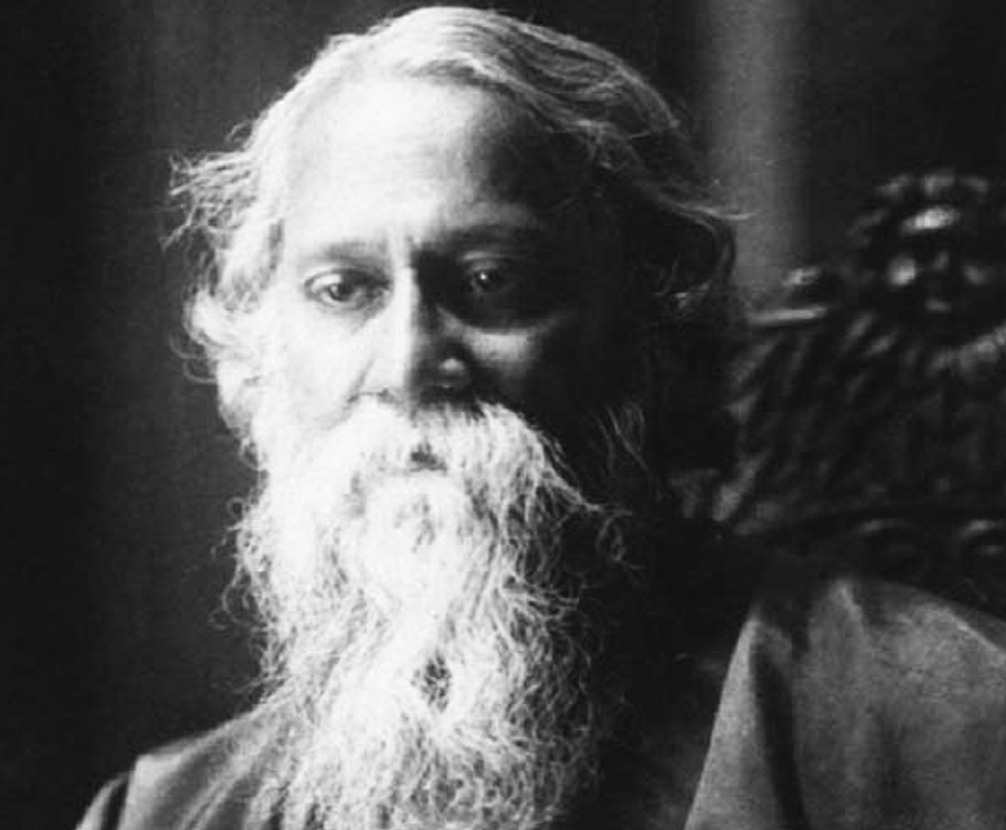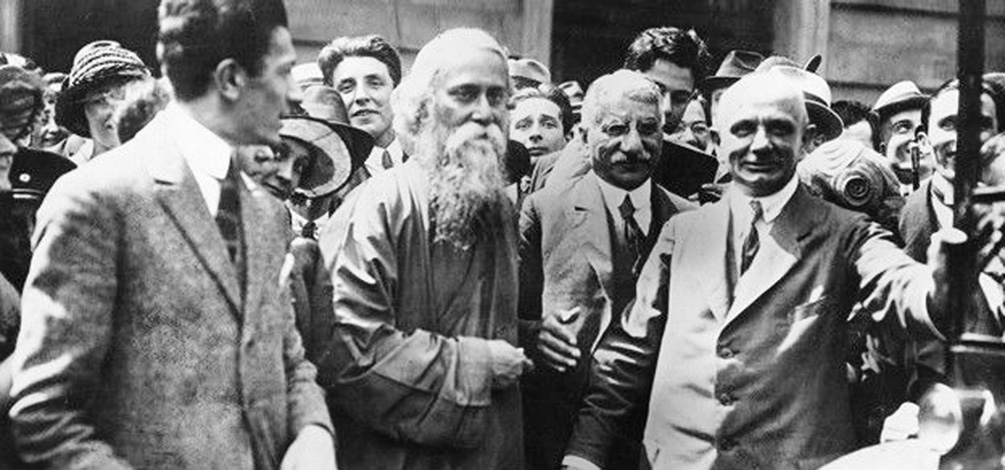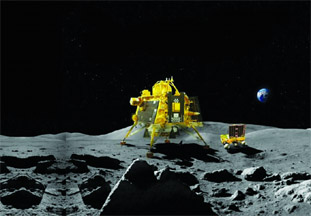
A tribute to Gurudev Rabindranath Tagore on his 156th birth anniversary which falls on Sunday, May 7, 2017
Rabindra Nath Tagore exists as one of most prominent figures in the literary and the philosophical world. Born in the nineteenth century India, Tagore through his writings has served as an emblematic figure who continues to inspire and influence masses across the globe in the contemporary era also. He is known as a complete man who encompassed everything in his poetry ranging from religion, aesthetics, education, nationalism, and social dynamics to internationalism and race relations. The paper attempts at exploring some of the substantial and recurring themes related to Mankind in the poetry of Tagore. His poetry is highly complex with regard to the volume and vastness that it becomes quite difficult to compartmentalize it. An attempt has been made to discuss some very important aspects with relation to his themes.
Rabindra Nath Tagore was born on May 7, 1861 in central Calcutta. From the very childhood, the formal education did not suit him and he became a dropout at an early age. At home, he was subjected to a confined life where he could rarely move out, thereby, whetting his sensibility. However, there was a constant appeal that he found in Nature. To him, universe was as if wrapped in some mystery and he desired to approach and unlock it. An important aspect of his household life was that literature and music held an important place. Therefore, there was a scope for a literary growth and Tagore utilizing this at full started to write right from his teenage and then, there was no end to the output of his pen. His verses have never remained as a stagnant source of delight but they have moved and even continue to move and influence masses even today. Be they the lovers of nature, of god, of humans, of nations, Tagore gives a say to all. An important feature of Tagore?s poetry is the humanist spirit which pervades it throughout.
According to humanist school of thought, man is the measure of everything and he is the means to reach the Divine. The relationship between “I and thou? holds an important space in this domain. Tagore became an epitome of the conduct of this belief. He saw men as men, devoid of the caste, color, sex, race or national distinctions. Though his poetry, therefore, he explored the relationship of man with God, of man with Nature and that of man with man. The presence of divine spirit in man granted him a status above the ordinary. Therefore, according to Tagore, every man was endowed with an ethical responsibility of serving other men at large for serving men was serving God. He advocated dedicating one’s life to the growth and flourishing of mankind through the path of love, knowledge and selflessness. Tagore was completely against the barriers which acted as the demarcating means among men. To him, all were equal anddeserved equal attention and appreciation. To work for the downtrodden was the primary lesson that he taught the world. He says himself being ever ready to work:
“Here is thy foot stool and there rest
Thy feet where live the poorest and lowliest”
Tagore was the lover of people, the lover of life who responded to its delights as well as distress.

Tagore had pledged his loyalty to all mankind. He strove for the rights of children, women, poor and ignorant and demanded an equal share for all. The religion that he preached was the religion of man. He sought a freedom from evil, greed, avarice, hatred and fought for the freedom of humans from the worldly strangles. The blind ego of man, the lust for power and the desire to exploit were all, targeted areas. In many of his works, Tagore has commented on the nature of Man discussing him in relation to Nature and other men.
From his very childhood, Tagore shared an extraordinary relationship with the outside world. The rising of the sun, the chirping of birds, the tides in seas, and the moon in the night, everything had a special significance associated with it. Nature, to him, was never an alien identity but it was a manifestation of God and an aspect of man’s actual essence. The various manifestations of Nature in one way or the other were linked to man?s eternal being and therefore, laid an extraordinary influence upon the personality of man. The only need was to cultivate an eye that could perceive things in reality but because of the continuous involvement with the material world, man had lost touch with the Reality.
According to Tagore, “All our knowledge of things is knowing them in their relation to the Universe, in that relation which is truth”. The involvement that contemporary beings have with the world has deprived them of the power to see and understand things in their true color. Tagore says, “we grow out of touch with this great truth, we forget to accept its invitation and its hospitality, when in quest of external success our works become unspiritual and unexpressive” (Tagore 9). Nature, according to Him, is the manifestation of the Supreme and in fact the self and nature actually are nothing but the twin aspects of the Absolute. It is nature which actually forms the backbone of human personality. In fact, they share a relation of collaboration and transcendence. Man is a bridge between the transcendent and the nature. He claims:
“At one pole of my being I am one with stock and stones. There I have to acknowledge the rule of universal law. That is where the foundation of my existence lies, deep down below….But at the other pole of my being I am separate from all. There I have broken through the cordon of equality and stand alone as an individual. I am absolutely unique, I am I, I am incomparable.”
The most important thing necessary to reach and perceive the Absolute was perseverance. It takes a lot of efforts, patience and strength to cross all hurdles successfully and reach the other shore.
An important emphasis that Tagore lays upon is the religion for every man to achieve and arrive at his true nature. According to him, religion serves the purpose of bringing man into close contact with the Supreme. By religion he didn’t mean an orthodox set of principles but according to him:
“… religion is too concrete a thing, though I have no right to speak about it. But if ever I have somehow come to realize God, or if the vision of God has ever been granted to me, I must have received the vision through this world, through men, through trees and birds and beasts, the dust and the soil.”
What he believed in was that the ultimate end of humanity was achieving a harmony with everything around in this world and the inner world. According to Tagore, one could achieve harmony by recognizing the fact that ultimate Being doesn’t reside anywhere outside one’s self but instead is a part of one’s self only.
Tagore looked at man both from inside and outside as well.
The so called civilization and modernization according to Tagore can never create an influence to make man forget himself unless his actual conscience is alive. The only matter of distress to him was man?s inability to feel the inner pulse of action and the great truth within. According to Tagore, man possessed the power to play a role for the overall benefit of mankind. According to him, Salvation and freedom could be achieved upon realizing the divine voice within. The realization of god drew man on the way to enlightenment for it makes one aware of the pitfalls, limitations and all the constraints which in turn act as the harbingers of the unhampered union between the creator and the man.
Tagore says:
‘Obstinate are trammels but my heart aches
When I try to break them
I am certain that priceless wealth is in thee
And that thou are my best friend but I have not
The heart to sweep away the tinsel that fills the room”. According to Tagore, what glorified man was the desire to grow instinctively. An important agency which Tagore believed to be useful for the enlightenment of humanity was education.
According to him, there was a need for cultivating a proper environment which could shape the intellects and lead humans to emancipation both worldly as well as spiritual. The way a plant required care to grow and blossom in the same way minds required proper cultivation. “The best part of man as Tagore rightly thinks suffers terribly because the best of his thoughts die unborn and unexpressed”. However, the hollowness of the education andsocial systems leads to a deformed growth of humanity. To bring out the real potential andchannelize it, education plays a very substantial role. The primary agency for it was the schoolfor Tagore believed that man as a child existed in a pure form. The world never laid itsmaterialistic influences upon the childhood existence and by the time man grew, the worldweighed him over making him lose control over his spirit of freedom. In order to attain harmonywithin oneself, it was important to be one with the self, to be a man from within and to manmeant being in harmony with the real/divine world achieved through the union of soul.
A release from the obsessions within and a union with the Ultimate was a constant point of emphasis for Tagore. The Ultimate exists as an unflinching identity, always there to show and guide a man to the right path. Oneness with the world and its diversities was the ideal concept of Man. The soul of everyman is of infinite value and therefore, every man should strive towards betterment with every passing day. A man is never just body and mind but more than passion and reason. In essence, he is a social being and therefore, he should never shirk away from the society but instead should try to learn from the social communion which is at large a collective creation. Tagore?s wisdom was that of the heart also and not only of head. It helped him to see the world without any personal bondage and helped him grow into a committed man without any caste, religious, community or tradition biases. This is an important feature which makes him survive even today. His works remain as the ever relevant and ever enlightening doctrine merge into the larger realms of human life.
(The author is a Research scholar, Department of English, Central University of Kashmir and can be reached at wasia.mushtaq@gmail.com)(Source: Express, an International Journal of Multi Disciplinary Research. ISSN: 2348 – 2052, Vol. 1, Issue 6, June 2014. Available at: www.express-journal.com)





Be the first to comment